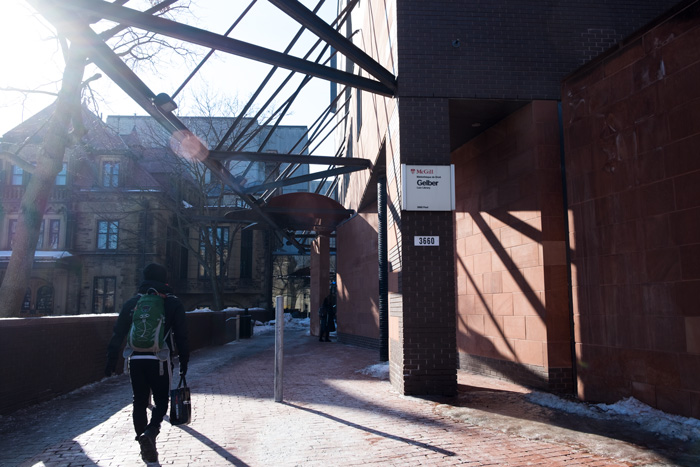Innocence McGill is a legal clinic at the Faculty of Law that investigates wrongful convictions in Quebec. On March 15, it hosted its annual Bad Science Brought to Justice Conference, a panel series started in 2006 that provides a spotlight for wrongful convictions stemming from negligent forensic analysis and bad science.
Moderated by Assistant Law Professor Alana Klein, this year’s panel consisted of Lianne Thibeault, an Ontario woman wrongfully convicted of murdering her child, the Honourable Stephen Goudge, commissioner of the Inquiry into Pediatric Forensic Pathology, and Caroline Tanguay, an expert at the Laboratoire de sciences judiciaires et de médecine légale in Quebec.
On Nov. 30, 1995, Thibeault’s 10-month-old son Nicholas accidentally fell and hit his head on a sewing machine in their Sudbury, Ontario home. Nicholas was rushed to the hospital and later pronounced dead. It was soon revealed to Thibeault, however, that the former head of the Ontario Pediatric Forensic Pathology Unit, Dr. Charles Smith, had accused Thibeault of murdering her son.
“What soon followed was a never-ending series of cruelty, lies, and sheer incompetence,” Thibeault said. “[Dr. Smith] was 99.9 per cent certain that I had caused Nicholas’ death and that I would do it again.”
Goudge established the 2007 Inquiry into Pediatric Forensic Pathology in Ontario, also known as the Goudge Inquiry. The inquiry was a response to concerns that arose regarding criminally suspicious deaths of children handled by the Province of Ontario, many of which directly involved Dr. Smith directly. After the inquiry was completed, a report was published in 2008.
“During the 1990s, there were red flags about the work of [Dr.] Smith,” Goudge said. “He was adamant his failings were never intentional, but it was discovered [that Dr.] Smith lacked basic knowledge about forensic pathology.”
Goudge’s inquiry prompted the reinvestigation of more than 40 cases that Dr. Smith was involved in.
“It was quickly determined that in 20 [cases], the evidence didn’t sustain [Dr. Smith’s] opinion and in 12 cases there had been wrongful convictions,” Goudge said.
Goudge concluded that the legal system had failed the Thibeault family and at least twenty others wrongfully accused by Dr. Smith.
“It wasn’t just the failings of one individual,” Goudge said. “It was the failings of the set of participants in the system, […] the police and the scientists. In many of the cases, the lawyers failed to understand the weakness of the science.”
Klein then directed the conversation toward the question of why a respected doctor, like Dr. Smith, would work to persecute so many grieving families on evidence that was often ambiguous or misleading. Tanguay said that Dr. Smith’s actions accelerated Ontario’s standards for pathology training
“Once people became pathologists, [they] jumped into performing autopsies without any training, without any notion of differentiating post-mortem changes,” Tanguay said. “They wouldn’t recognize the limits, […they] would start to testify in court and because they testified, they would be recognized as expert witnesses and would build their credibility on personal experience, which they developed themselves without any formal training.”
Months after her son had been re-examined in a second autopsy, Thibeault’s case was independently investigated by the provincial coroner’s office, which unequivocally determined that there was no evidence of foul play. Thibeault was acquitted of all charges and Dr. Smith was banned from performing further autopsies. Dr. Smith was reprimanded for his actions but it was not until 2011 that he was stripped of his license to practice medicine. Many of the families affected, including Thibeault’s, have been entitled to financial compensation.








